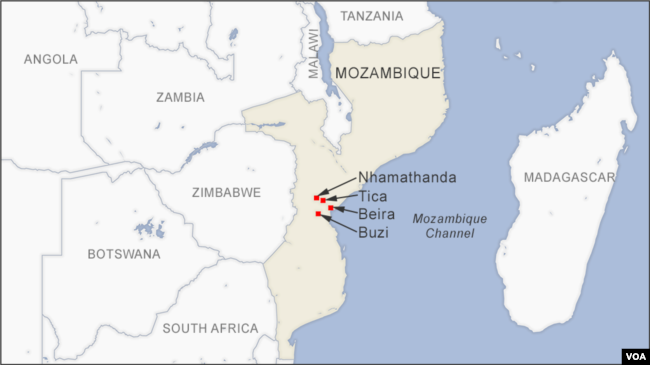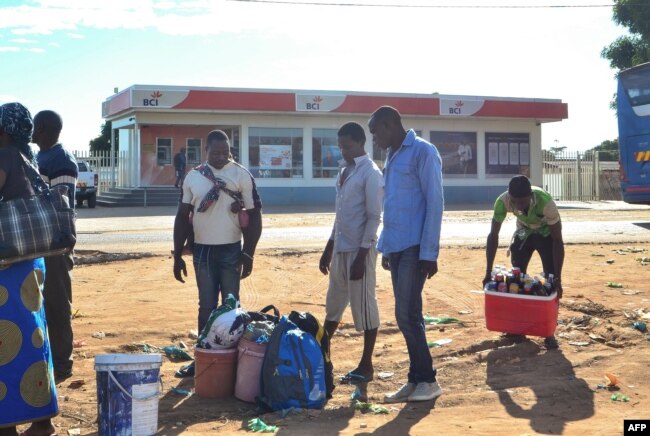A recent attack claimed by the Islamic State (IS) terror group in a northern province in Mozambique signals a growing presence of extremist groups in the southeast African country, experts contend, VOA news reports.
IS claimed responsibility for an attack May 28 in the Cabo Delgado region, where a gunfight between government soldiers and Islamist militants left at least 16 people dead and a dozen wounded.
Mozambican officials have declined to comment on the incident.
Since 2017, Islamist insurgents have carried out similar attacks against the military and local residents in the impoverished, Muslim-majority Cabo Delgado region. More than 200 people have been killed and dozens of villages burned down by Islamist extremists in the past two years, according to local sources.
The growing violence continues despite a heavy police and military presence in Cabo Delgado and other northern areas of the country.
Ansar al-Sunna
The group suspected of carrying out the recent attack in Cabo Delgado is called Ansar al-Sunna, locally known as al-Shabab, which is an extremist group that has been operating in the region for more than two years. The group has also used other names, including Ahlu al-Sunna and Swahili Sunna.
While little is known about Ansar al-Sunna, it has been responsible for dozens of attacks against civilians and government forces in northern Mozambique.
The group has been reportedly preying on young Muslims who have been distraught because of unemployment and lack of economic opportunities in the country.
IS presence
After losing all the territory it held in Iraq and Syria, IS seems to be shifting its strategy and focusing on local Islamist militant groups that have pledged allegiance to the terror group.
IS leader Abu Bakr al-Baghdadi appeared in a video in April, encouraging his followers to wage attacks on behalf of IS throughout the world, naming an IS affiliate that has been active in several African countries.
IS “has recognized [Ansar al-Sunna] as an affiliate and this is essentially how it claims it has presence and fighters that operate within Mozambique,” said Ryan Cummings, director of Signal Risk, an Africa-focused political and security risk management consultancy.
He added that it was difficult to confirm all such claims, since Mozambican authorities have not confirmed the recent attack and insist that the terror group has no presence in the country.
IS, however, “has produced images of weapons it had seized from the Mozambican soldiers following the attack, which is something [IS] generally does in cases where it does have access to that information to support its claims,” Cummings told VOA.
North Mozambique
Some experts believe IS has already set its sights on Mozambique, particularly its northern region because of the economic disparity that, in part, allows radical Islamist ideology to flourish, especially among the youth.
“The situation in north of Mozambique is more virulent than other parts of the country,” Alex Vines Obe, director of the Africa Program at Chatham House, said during a panel on extremism in northern Mozambique, held Thursday by the Center for Strategic and International Studies (CSIS) in Washington.
“The situation there is highly complicated, and so the government of Mozambique needs to be forensically focused with its international partners and focus on that crisis,” he added.
“Islamic State has its eyes on the country, with the environment in northern Mozambique now regarded as a perfect gateway appropriate to its strategy,” Jasmine Opperman, a counterterrorism expert, argued this week in an opinion piece published in South Africa’s Daily Maverick newspaper.
Violent extremism
U.S. officials also say that Mozambique has been facing challenges in dealing with violent extremism in the northern part of the country.
“The United States and other regional and international partners have been engaged in helping the government develop a holistic security, community engagement and communication approach,” said Stephanie Amadeo, director of the office of southern African affairs at the U.S. State Department.
“The goal for this approach is to address governance and development issues and provide increased training to build the capabilities of Mozambican security forces,” she added during a speech at the CSIS event in Washington.
But experts believe that regional and international cooperation with Mozambique on countering violent extremism has been limited in scope to only intelligence sharing.
“There isn’t any information to suggest that Mozambique is receiving any form of counterterrorism assistance from outside of the continent at this time,” analyst Cummings said.
“At this stage, if there’s any military cooperation that is taking place, it seems to be limited between Mozambique, Tanzania and Uganda to a certain extent,” he added.
Government measures
Mozambican President Filipe Nyusi has vowed to address threats posed by extremists, deploying additional reinforcements to northern Mozambique where hundreds of people have been arrested.
“The country is falling victim and we all need to understand the real reasons,” Nyusi said in a recent interview with the Canal de Mocambique newspaper.
“The defense and security forces are putting their whole resources into this, so we can learn motivation [of the insurgents] and who these people are,” he said.


